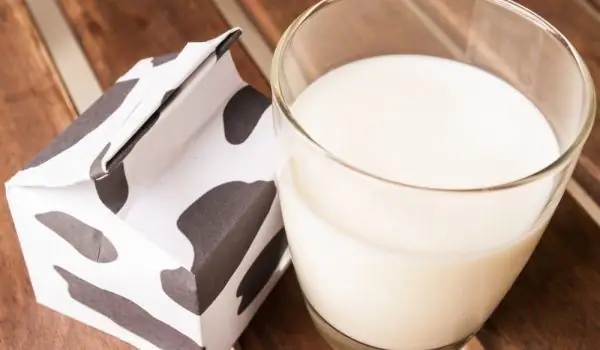2025 Author: Jasmine Walkman | [email protected]. Last modified: 2025-01-23 10:18
The topic for frozen foods and products is one of the most current in recent years. These products, so convenient for every housewife, cause the emergence of many myths and legends about their use, some of which are complete lies.
The freezer is an integral part of a household. Even if its size is small, it is actively used and is undoubtedly a great convenience.
Freezing products is more of a routine procedure. However, it gives rise to so many misconceptions that it can ruin both the quality and the benefits of any product. Here are the most common myths and the truths behind them:
All products can be frozen. In practice - yes, but you should not. The reason is that for some this is contraindicated. Care must also be taken with defrosting, as many products lose their shape, texture and taste during this procedure. That's why it's time to forget about the idea of storing coffee beans, cream sauces, soft vegetables, butter, eggs and canned food in the freezer.
Re-freezing is contraindicated. It is really not good to do it, but it is not forbidden. The only problem is that food can lose much of its flavor.
Freezing is convenient. The truth is that in the freezer all products may look frozen, but regular opening of the door creates condensation, which settles in the form of ice crystals. This destroys the integrity of food. Their taste deteriorates and the shelf life is shortened, which makes freezing not so convenient. To make the most of the benefits of this type of product storage - distribute them in order of importance. Longer-lasting products that you will not be using soon are placed on the back wall. Those that will be needed in the near future should be closer to the freezer door.
Frozen products are forever years. The frozen form of the products may prolong their life, but not forever. The misconception is that food stays in the freezer for months and years. However, the freezer also has moisture and air, which are among the worst enemies of any product. That is why boiled chicken and turkey can be stored for up to 4 months, and raw meat - up to a year. Soups, stews and ready-made meat are stored for up to 60-80 days at a temperature of 18 degrees. The shelf life increases if the food is placed in a vacuum package.
Freezing kills bacteria. Absolutely wrong. When there are bacteria on the surface of the products, they do not die even when deep-frozen. Only heat treatment can kill them.
Nutrients decrease when frozen. Exactly the opposite. Frozen fruits and vegetables that are ripe and frozen contain the maximum amount of vitamins and trace elements. In order to take advantage of all the nutritional qualities of the products and not to lose them, you need to thaw them slightly - preferably in a water bath.
Recommended:
Myths And Truths About Caviar

Caviar is not only very tasty, but also a very useful product. It is also quite an expensive pleasure, which leads to a huge amount of dubious caviar on the stands. It is important to know how to make your choice. One of the most common myths about caviar is that black is more useful than red.
Truths And Myths About Water

Life on Earth originated from water. The human body itself is ¾ water and it is extremely important to drink water almost constantly in sufficient quantities so that our body can rehydrate again and again. In addition to being vital, water is also able to keep our waist thin.
Pasteurized Milk - Myths And Truths

The path from healthy milk to dairy products, a source of allergens and carcinogens, begins with the modern feeding of cows for mass production. The milk obtained from them is subjected to pasteurization - a process in which milk is heated to 71-72 degrees for a short time in order to destroy pathogens in it.
Myths And Truths About Nuts

Is everything in nuts useful? This question has been tried to answer by Italian nutritionists, who have studied all the beneficial and harmful properties of these much-loved delicacies. One of the myths is that nuts help lose weight. However, this is not quite so, say nutritionists.
Myths And Truths About Calories

When you want to lose weight or pump up your muscle mass, the first thing you think about is the calories you ingest with your food. Calorie balance determines whether you will gain weight or lose weight. But many people fall victim to the myth of calories, and this can only stop them from fighting excess weight.

